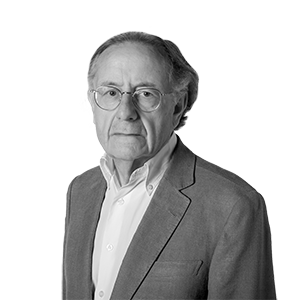The children in the dock


The family is made up of human beings. No two people are alike, and therefore, differences in potential grow and develop between parents, between siblings, and between parents and siblings, forming complex power systems that culminate in unique relationships of dependency. The figure of the eldest sibling is a classic example: they believe themselves to be superior to others and, at the same time, entitled to take advantage of their parents (the figure of the heir, enshrined in this country, is a perverse institutionalization of this reality). If the family is large, the dynamics become more complex, as do the combinations of loyalties. There is a far from innocent tendency to believe that everything is justified in the family's best interest. And it is in this context that the principle of reality is often lost, and nihilism unfolds: everything is permitted. Simultaneously, internal rivalries and loyalties take shape, with the father-mother dynamic as the guiding thread.
In the Pujol family's misfortune, homeland and family intersect, two basic forms of socialization based on land and blood, two frameworks with a claim to sacredness as a means of articulating the collective. In the name of the homeland, everything is permitted; in the name of the family, too. And from there, everything is possible. The result is that we now have the Pujol siblings sitting in the dock at the National Court. While their mother is no longer with us. And their father, at 95 years old and with significant cognitive decline, appears remotely, and there are serious doubts that he can be tried even though the court is currently keeping him in the proceedings. Ironically, it is the children who sit in the dock. They, who imagined that their father's power guaranteed them impunity.
Now the trial has arrived. The parents will leave their biographies marked with a dishonor they will no longer live with, and their children will pay the consequences of having believed themselves untouchable. Although, it must be said, President Pujol has played an important political role in this country: in Catalonia, by revitalizing the nation, but also in Spain, by defending institutions in critical moments and contributing to the normality of the alternation of power. But irresponsibility, or, if you prefer, a lack of seriousness regarding corruption, was something that hung in the air, and no one has been surprised by what has come to light (and what remains to be seen). The impulses that drive family life are ineffable.
What judgment will the judges cast in this case? Where will the trial lead? In any case, ambition always carries that risk: truly believing that everything is permissible. Or, in the case of the children, taking for granted that the father's power grants them free rein to impunity, which is a sign of being out of touch with reality, among other things because the hegemony of authorities is usually ephemeral. Protected by their mother and their father's presidential aura, they believed they could get away with anything. This sense of impunity has contributed to the children going far beyond what is reasonable. It might be interesting if someone were to write an account of the delays that have caused the outcome of this story—a story of people who have lost touch with reality and who believed that everything was permitted to them simply because they were their parents' children—to drag on for so long. Family relationships are perverse and have fueled their belief in their untouchability until someone finally said enough was enough.
Some will want to turn this trial into a complete condemnation of Catalan nationalism. They are wrong: look around. There are constant reports of political and familial entanglements in the day-to-day workings of politics: the temptation of easy money and crooked dealings is widespread, as in every party there are those who go straight for the jugular. And let's not even talk about the other kind of corruption, that of those who play into the interests of economic power, hunting for vulnerable people who can be bought off. Corruption is not unique to this episode: it is a practice that is reported every day. But in the case of the Pujol family, there is the added factor of the patriotic alibi, as obscene as any other. And it puts them in contradiction with themselves. So much patriotic rhetoric only to end up miserably scrambling to scrape together a piece of the pie at every turn.


